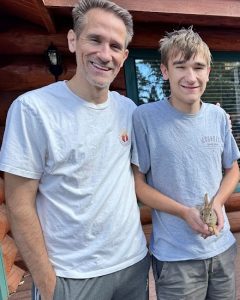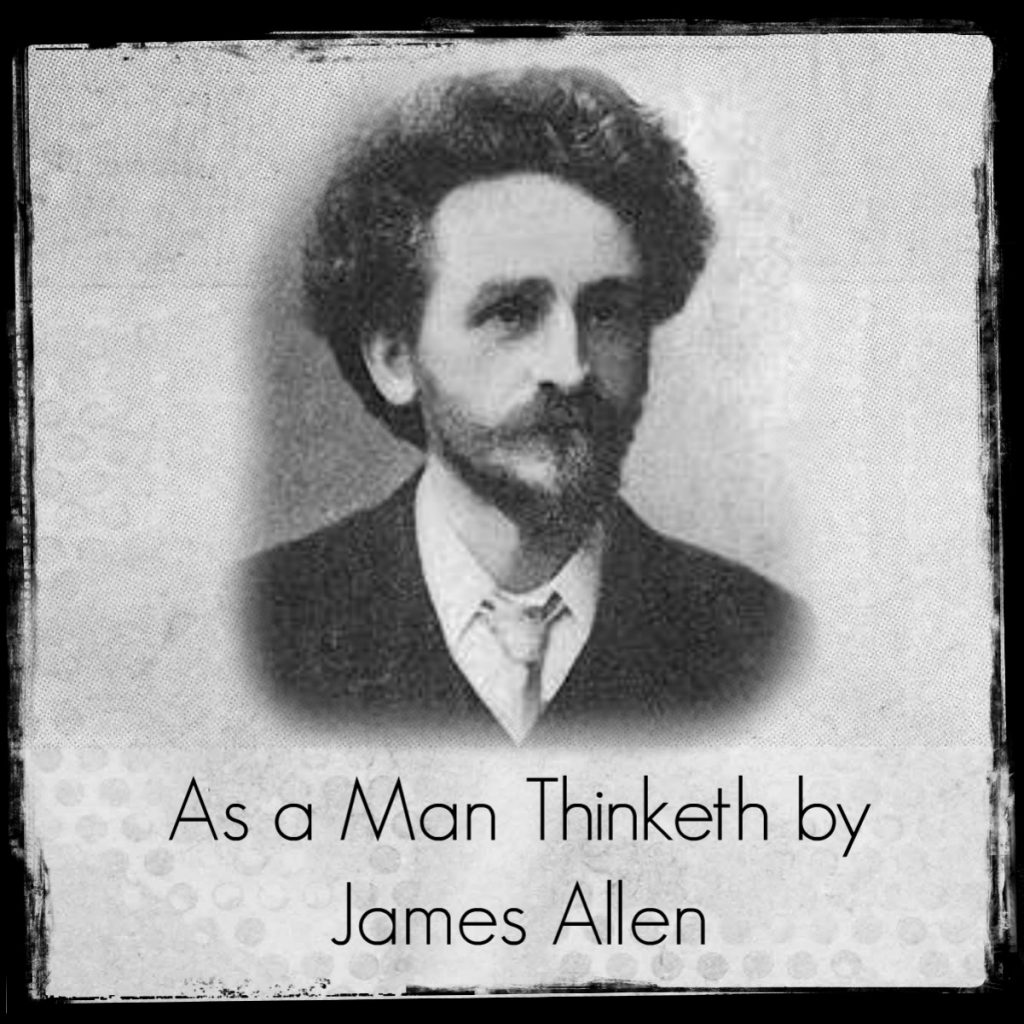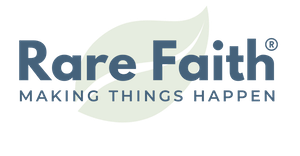If you’re serious about living your purpose, then isn’t it time you learned principles that make it possible? Together with my long-time friend and mentor Marnie Pehrson, we come together to help you believe that what you need is really much closer than you think. Principles discussed on this audio include Polarity, Gestation, Relativity, and the Formula: FC = MC*RC.
Just remember, “There is no such thing as stuck, until you’ve decided that you’re done. But that’s a choice.” ~ Leslie Householder
Resources related to this podcast:
- School of Life Mastery
- The Visual Aid that changed everything (Stickman Video)
- Free Download of the Portal to Genius book
Have your own message to share?
TRANSCRIPT:
ANNOUNCER: Welcome to the Rare Faith Podcast, where the solution to every problem is only an idea away, where the same activity with just a little more awareness always yields better results. Award-winning best-selling author Leslie Householder brings some of her best information to this inspiring series of life-changing episodes that you won’t want to miss. Show notes for this episode can be found at ARareKindofFaith.com
MARNIE: Hello everybody, this is Marnie Pehrson with IdeaMarketers.com. Thanks for joining me. Our guest today is Leslie Householder and Leslie’s a good friend of mine. We’ve known each other for about ten years now and when I count the people in my life who’ve made the most significant impact, Leslie tends to come up toward the top of the list. So she’s really made a huge impact on my life and I’m very grateful for her.
Just to give you a little bit of an introduction about her, she’s the best-selling author of The Jackrabbit Factor: Why You Can and Hidden Treasures: Heaven’s Astonishing Help With Your Money Matters, as well as Portal To Genius. Leslie has empowered people across the globe for nearly a decade with her unique approach to the principles of prosperity.
After attending more than one hundred seminars with only marginal results, Leslie and her husband, Trevan stumbled onto some simple but amazingly powerful concepts. In just a few months, their income tripled. Their purpose now is to lead others to experience a quantum leap of their own towards greater prosperity in all areas of their lives.
While financial success may be the primary object of one’s pursuit, as parents of seven young children, Leslie and Trevan Householder affirm that faith and family is critical for a solid foundation on which to build true wealth. Leslie, you’ve got a School of Life Mastery, don’t you? Tell us a little bit about that.
LESLIE: I do. The School of Life Mastery has been our way to take the information that we’ve been creating over the last ten years and make it available to the worldwide audience who don’t always get to travel down to my corporate centre training room here where I live. And you know, I’ve done some traveling but with a growing family and family being our top priority, just getting around and traveling has not been the right season for us.
So the online School of Life Mastery takes our most advanced training programs and helps people walk through them as though they’re going through a college, a university experience. So it’s not just a matter of “listen to this audio” and whatnot. We’re going to walk you through these lessons one at a time. We’re going to check your understanding about them. We’re going to give you assignments that you’ll come back and, and your life will be transformed.
MARNIE: Yeah, and her School of Life Mastery, I, I think that’s great because that’s the way Leslie taught me. You would just email me things and then we’d talk about it and you know, about 10 years ago and it made a huge impact. I started out when I very first met her, we had a financial challenge that really messed us up. It gave us a lot of debt and I was making about $2,000 a month off of my business and, and Leslie started teaching me this stuff and immediately, it started to double and triple and you know, it’s just kept growing exponentially since then.
It’s by using the principles that Leslie taught me and one of the key things that I think played a role in it for me was when I met Leslie, she came along at a time when I finally had figured out what my purpose was. I had just started She Loves God and I was starting to really get out the message that you’re here for a reason, you have a purpose in life, you have a message to share. And I just started on that path when heaven brought Leslie into my life to help me be able to use these principles to get the resources and the people, and you know, even the money that I needed to progress and be able to fulfill my life purpose.
And I think it’s, that’s an important element in it because a lot of people use the Law of Attraction to, you know, just willy-nilly set a random goal of something huge they want that may, or may not be within what they’re here to do. Leslie, can you talk a little bit about that?
LESLIE: I can speak from my own experience. I, when I first discovered the principles in a way that I finally got them, I mean, literally we attended more than a hundred seminars trying to figure out how to get the principles of success to work for us. We knew that there was something about our thinking having an influence on what was showing up in our life and we thought we understood it.
We thought we got it but we just couldn’t quite make things work the way we wanted them to, and when the lights finally turned on and we realized that it’s not that complicated. All the talking about it and all the reading about it didn’t do it for me until I saw a diagram that burned a tattoo in my brain of how it works. And now any time I’m questioning or stuck, that image shows up in my head and I know just what to do.
What I found was that for several years, I was able to use the principles to totally transform our life. My husband and I, both and get into a home that, that met our needs better, that we moved to another state where we had always wanted to be. We just started creating our life the way we wanted it to and then we got a little bit cocky.
We started just setting goals for things that without, without a whole lot of thought as to well, is this, is this the right thing for us? Is this a good thing for us? And it burned, it burned us. We, we had the rug pulled out from under us. We had some severe setbacks and we had to relearn a lot of those things all over again from a different point of view, from a new concept.
And what I found out is that every one of those lessons has been good for us so I don’t regret any of it because of what we’ve, what we’ve learned through it. But I have discovered that the principles work more dependably and they work more long-term, and they, they hold you up in your, in your, in that journey of trying to accomplish a really, really tough goal if what you are setting out to do is in alignment with your purpose for being here.
And I’m, and, and that can be a spiritual conversation or a religious conversation, that’s up to you how you want to look at that and I’m not saying that. Like for me, I, I consider myself a very spiritual person with religious convictions that are important to me but I also know that I have a contribution to make while I’m here on this planet that, that spans and bridges gaps and is not only in one category of my life. There’s more for me to do and more people to reach than maybe what I originally thought.
And so when I am taking steps and taking actions that support or are in alignment with that core divine blueprint for my life, then the principles support me more, more dependably. I found out that you can get anything you want with the principles of success but you will only have long-lasting joy and fulfillment, and that deep satisfaction of accomplishment if your whole life is in balance around your life’s purpose.
MARNIE: Yeah, totally. I agree with that. I like that… core divine blueprint. In Portal To Genius, you cover this, don’t you? You cover the story of a man who’s trying to figure out his purpose?
LESLIE: Right, right and actually, there’s quite a few. There’s a handful of characters that are all simultaneously asking these same questions in their life and they’re totally different kinds of people. There’s, there’s the surgeon who used to love football. There’s the housewife who used to love dance. There’s the, there’s the man who wanted to be a doctor and ended up being a salesman.
I mean, these people who have, who their lives just didn’t quite work out the way they wanted them to and they’re trying to figure out how to get on track so that they can look back on their life at the end of their days and say “man, I did what I was put here to do” and that, that gratification, that legacy has been fulfilled.
And so, what’s interesting is as you watch these different characters do this soul-searching and interact with each other, it’s fascinating to see how everybody’s got a similar quest but everybody’s going to find it in a, in a different way and doing different things, and yet they’re using the same principles to come up with these answers.
MARNIE: Can you share some of the principles that would lead somebody to being able to figure this out for themselves?
LESLIE: Well, it’s a, it’s one of those things where we could talk about it for weeks and we’d only just maybe skirt up against it. It’s such an interesting process that has to be experienced before you really understand it but, but here’s some questions that a person can ask themselves to kind of get moving in the right direction.
I’ve found that a lot of times, the books I read aren’t so much teaching me something new as they are confirming to me or, or countering to me something of my own experience, my own conclusions. They’re either confirming my own conclusions or they’re giving me new ways to look at my own conclusions.
I don’t know if that makes sense but when you’re on the right path and you read a book that, that really hits you, it’s going to be because that book is telling you “yeah, you’re on the right track” and those are the best kind. But some questions a person can ask is just making a list of what are some things that really bring out the best in you. What things do you do that when you’re doing those things, you are alive, you feel inspired, you feel a soul expansion.
It might be that, like for this one character, it was football. And it really bothered him that he, he would finish an incredible surgery, a groundbreaking operation that saved a life, and he went back to his office and he just didn’t feel fulfilled. And it bothered him why his thoughts kept going back to football and it’s not because he needed to be an NFL player that, that wasn’t, that wasn’t it. It’s really interesting to see how his experience in football taught him some principles that he was able to turn around and apply towards his life work that brought it all together, and gave him that fulfillment and satisfaction.
And so you think back in your life at times where you felt alive, and you felt empowered and purposeful, and even if you can’t see how, on a grand scheme of things, it could have anything to do with your soul purpose, it has taught you lessons. Maybe it’s taught you teamwork. Maybe it has taught you independence. Maybe it has taught you tenacity, maybe it’s taught you patience.
Whatever those lessons are, those ultimately culminate together to show you how you can bring them all together, and make the contribution to this world and leave the legacy that you want to leave. Even if, as you’re listening to this call, you haven’t even got a clue what that might be. You can just trust that life has a way of leading you towards it, especially if you start looking for it. You know, they say “seek and ye shall find”. Well, it’s true in this, in this situation as well.
I had a, I teach goal setting classes, goal achieving classes and one of the questions that has come up more than once is “you know what, I, I get it. I understand that I could apply these principles and achieve anything I want. I just don’t know what I want. I don’t know what I want to do. I don’t know where to go.”
You know, I remember watching a movie probably 15 years ago called “Rudy”. It was about a football player, Rudy Ruettiger, who played for Notre Dame, or wanted to all of his life and he ultimately did but the whole time you’re watching this, this young man with a passion and a determination like none other to accomplish this goal. He wasn’t built for it. He didn’t have the grades for it, he didn’t have anything going for him and he made it happen.
And when it was done, I was so inspired by that movie. I was so empowered, I was like “oh my gosh, I want to feel that way about something!” And then I got depressed because I didn’t know what I wanted that bad. I couldn’t think of anything that I wanted that bad to go through the kinds of things he went through and so that began a new kind of quest.
Instead of a quest to accomplish your goal, you can be on a quest to find a goal to accomplish that’s worthy of you. And so I teach people “okay, so you set a goal and you write it down in present tense… “I’m so happy and grateful now that I have discovered what I am here to do next.” And I say it that way because your purpose will evolve and transform and morph over, over the years. What you think is your life’s purpose now will probably develop and turn into something a little bit different, and something bigger, better or altogether upside down from what it is now later. Does that make sense, Marnie?
MARNIE: Yeah, yeah. It definitely evolves over time, certainly. I don’t think I saw where I was going in the end, you know, and I’m not even at the end so I imagine it will continue to evolve into something else.
LESLIE: Well, I think about how I thought my purpose was to teach these principles and that’s, that was what I threw my whole heart and soul into for many, many years and I started feeling a little bit unsettled. I started feeling like something’s missing, something’s not right and started looking for “well, what’s next? What’s the next thing on my path?”
And it turns out, you know, new problems showed up in my world that I thought “man, I didn’t, I didn’t want to have to solve this problem and what was this? This came out of left field.” And as I went to solve those problems and fix those challenges, what came from that was a recognition that what I need to be doing is I help, I help other authors now. I help other thought leaders, I help other leaders take their message.
Now that’s what you did for me, Marnie is, is when I met you ten years ago. You helped me take my message to a worldwide audience and there’s only so long that you can do, you know, that phase of things before you start feeling like “man, it’s time for me to turn around and help other people get their books out, have bestsellers, develop six figures with their message.”
So I love to focus on being the leader who trains leaders. Now, I never, never set myself up to be that. I never saw myself doing that but that’s how things have evolved and it’s, it’s exciting. It’s exciting to see the lives that are changed, not through me but through those who I’ve trained. That’s so much fun.
MARNIE: Yeah, it’s funny because we, we tend to do the same, we’re doing the same thing in a way, you know.
LESLIE: Yeah.
MARNIE: We’re both helping people get their messages out and you, you might say “well, okay, what do we need two people doing that for?” You know, there’s probably hundreds and thousands of them doing it, you know!
LESLIE: Not only that but the times that you and I have worked together to help leaders, I feel like she completes me!
[Laughter]
LESLIE: There are things that I don’t do well and I, I turn to you for help, and so it’s a, you know, and, and different people get messages and empowerment.
MARNIE: Yeah.
LESLIE: And inspiration from different people in different ways. So it’s, there’s never, there never can be enough of them.
MARNIE: Right, yeah, I agree. I mean, when I was studying these types of principles, I’d studied them before I met you but I was frustrated because I thought these things don’t work, you know.
LESLIE: Yeah.
MARNIE: But you were the exact teacher I needed to learn it from because you came at it in a way that I would listen, and were able to break it down almost in a scientific way so that I could, and in a mathematical way with your mathematical background, to be able to help me understand it like nobody else could.
And so I think we need lots of people teaching these principles because there’s different people going to learn it a different way, and they’re going to resonate with different personalities and the way they share it.
LESLIE: I know and there, there was a gentleman who came up to me after one of my events and he said, “you know, there, there is a book in me and I just have felt like oh, they’ve all been written. It’s already out there, it’s already…” and I said “but you know what, there are certain people who will only get it from you because of who you are, because of your, your come from, because of your angle.”
I mean, we all come with these, these glasses on where we perceive the world in a certain way and there are certain people who will never get it from me. They just don’t relate with me or they don’t, you know, it doesn’t make sense to them from my point of view but other people, like you said, it’s the only way they will learn it.
And so if you’ve got a message inside of you and you’re wondering, “well, what, what could you do that’s new and different?” Well, YOU are new and different. There’s nobody else on the planet like you and just you doing it your way is going to be what it needs to be for those people that are just waiting for it, so.
MARNIE: Yeah, and the more I see things go with social media and everything where people are out there sharing ideas, and there is duplication. You know, how many life coaches are there out there? Or how many business coaches, or whatever? It really comes down to you and your personality.
LESLIE: Right.
MARNIE: And being able to get it out there where people resonate with you and then they want to learn with, from you. So, you know, it’s wide open, whatever you feel like you’re called to teach, or share or do. It doesn’t matter that somebody else is doing it.
Leslie, you shared a formula with me. I think you said you got it from Garrett Gunderson and I loved it because again, you gave me a formula for something, a principle that I kind of understood at a gut level but you gave me a way to share it where people would understand it. Could you talk about that a little bit?
LESLIE: Yeah, absolutely. You know, I told you that our life kind of turned upside down and we had some, we had to pick up the pieces and kind of start over in many ways, and Garrett Gunderson was the guy who showed up to mentor us through that transition.
He is a New York Times best-selling author of a book called Killing Sacred Cows and he has become my co-author for Portal To Genius because of the things I learned. You know, The Jackrabbit Factor was the first book that really got out there and that’s a free download at JackrabbitFactor.com and that’s the one that kind of takes the principles from your head to your heart through a story, something that can be read in one sitting.
But Portal To Genius talks about all the things that I’ve learned since writing Jackrabbit Factor and it’s where it goes from the principles being just what they are, to how to apply them to finding and fulfilling your soul purpose. Well, Garrett, to help me do this, to help my husband and I figure this out, he drew an equation for us and you might want to write this down.
He said financial capital (and he just put FC for financial capital) equals mental capital (MC) x relationship capital (RC). So you’ve got FC = MC x RC and what that is, is it’s the formula for financial cash flow. It’s for abundance, for if you’re feeling like you’re lacking in that area, what most people do is they go attack the financial capital side of the equation. They think I need more money, how can I get more money and they start looking for the money.
But you can trust this, this principle. It’s a, this formula is that if financial capital is low then you need to forget about that side of the equation and go to the other side of the equation and start building on your mental capital. In other words, learn something new, gain a new skill or develop mental capital that can be shared with others. Whatever it is, that knowledge (either gain more knowledge or deliver more knowledge) and that builds the mental capital part of the equation.
Relationship capital is building relationships. It’s serving others, it’s developing relationships that can be strategic and this is something that Garrett did for us when we first met him. I was on his radio show a couple of times. He invited me to do that and then I was doing an event one summer in Salt Lake City and he heard I was coming out, and he says “well, what if I have you on the radio show? We’ll help you promote the event and then that way, we can get a lot more people there for you.” And I thought, “well, that’d be great. You know, free advertising. Of course, that’d be fabulous!”
And then he says “well, do you need someone to introduce you?” I’m like “yeah, that would be great!” And then he says “oh, what happens if we get too many people signed up? Do you want me to bring my camera crew in and we will do it as a webcast so everybody all over the world can see it who couldn’t get into the event?” I’m like “um… okay.”
You know, I was, I was feeling a little awkward about the whole thing because I’m just counting all of the dollars that goes into those kinds of resources, and I was feeling uncomfortable. My husband and I were like “okay, what does he want??” and being suspicious why he would be so giving, so generous.
And so we did that event and by the way, that event is the one that I pointed you to, that’s the Stickman video. That was the event that Garrett stepped forward and helped us create that, that video for our viewers. And what I realize now is that he was focused on the right side of the equation. He was building relationship capital and he was creating mental capital for his subscribers who he told about the event and for our subscribers, our viewers, our readers and he wasn’t worried about the financial side of it because the financial side is a byproduct.
It’s a natural byproduct of the mental capital and the relationship capital, and it’s not a plus between the two. It’s a multiplier because if you are a relationship that multiplies value for someone else then the financial capital is going to follow you more naturally. It’s not a trade this for that. That’s, it’s a multiplier as you are that giving as he was.
And since then, I’ve learned that that is why he’s been so successful because he builds relationships. He helps people solve problems and he does it knowing that the financial side will work itself out. Now, yes he does do transactions with people but he is first about the relationship. He would rather preserve a relationship than get the sale.
And so in our struggles during that time, we had to get our head out of the financial side and we were really stressed because things were really, really scary but on a day-to-day basis, we just asked ourselves “okay, what could I do for someone else today? How could I develop mental capital for someone else today? How could I increase my own mental capital today?” And just trust that the money will be there as it was needed.
Now, did it always happen as fast as we wanted it to? No, but this is your only true source of financial security, and that is to discover and fulfill your life’s purpose and operate on this equation the way it was designed.
MARNIE: And it really does come down to trust because who you help may not be the person who helps you.
LESLIE: Right, right, right. In fact, most of the time it isn’t.
MARNIE: It’s not, no. It doesn’t always come exactly from where it comes because like for years, I have focused on especially the relationship capital and putting knowledge out to help people, building relationships with other people that I admire and who have a message to share. And my financial capital comes in but mine, in particular, it comes from, I’d say 75% of my revenue, comes from advertising just running ads on my site. So I’m not necessarily monetizing every relationship and every mental capital that I have but it’s coming from a totally different place.
So it’s almost like you just put it into the pool and it will come back. Not everybody’s going to have the same model I do but I think I’ve been able to see that in action, that you just have to trust that it’s going to come back around and it will.
LESLIE: Right.
MARNIE: In whatever way is the right way for you.
LESLIE: It’s a hard thing to do but it’s rewarding. It’s one of the most rewarding things you can do is to just put your trust in the principles, in a higher power that kind of orchestrates all of it, realizing that as you operate in that place of faith, that the things you need come to you more easily than when you’re strapped with fear and not being useful to anyone, you know.
MARNIE: It’s not always cash either. It’s not always money, I mean the thing you need could be the person that walks in the door.
LESLIE: Right.
MARNIE: For me, I’d rather have a really cool person than a blob of cash.
LESLIE: Yeah.
MARNIE: I really would! I’m kind of a people collector so you know, because they’ve got their mental capital as they come to you, you know and you can tap into that a lot of times. And the more you’re willing to help other people get what they want then they’re going to help you get what you want. You know, it goes both ways.
LESLIE: Exactly, it’s cool stuff. It’s, it’s, you know, and those times where you feel like the world is just crashing down around you, it’s one of the hardest things you can do to think about who you can serve but it’s a formula that works. It’s a formula that is so important to live by and to trust.
I heard a story of a man who was in the Depression era and he didn’t have work, and he didn’t have what he needed but he couldn’t stand to sit idle. So he went to the, the railroad project and asked the foreman for a job, and he said “well, we don’t need anyone.” He’s like “okay, well, I can’t be idle.”
So he just started helping anyway and he volunteered and he just, he put himself in a place where he was building relationship capital with those around him. He was developing relationship capital with the community just by being of service that way, and the foreman was so uncomfortable with this, that he ended up giving him a job after all. And so it’s um, just don’t be idle. Do something, do something, contribute, be a producer.
MARNIE: Yeah, yeah. There’s a lot of people out there with a lot of time on their hands and if we’d start using it a little bit more proactively to produce some really cool things, we could make a big difference in the world, I think.
LESLIE: You know, one of the easiest places to start with that is to just put up a blog and share what you know.
MARNIE: Yeah.
LESLIE: Even if nobody even ever finds it, that’s not the point because what you can do right now is you’re just building mental capital to be useful to somebody whoever ends up finding it. And you’ll find out that people will find it and people will benefit from it. And some people, they’re really good at sewing and so they can create little videos or blogs about tricks on how to do those tricky corners, or whatever.
It doesn’t have to be big, huge earth-breaking something. It’s just sharing what you have, whatever it is and the feeling that you get from doing that is empowering. And it’s because you’re doing something that is an extension of you to serve others, and that always is accompanied by a feeling of satisfaction and an increase of, you know, that soul-expanding feeling.
MARNIE: Yeah, I’ve always felt like it’s not really mine until I’ve shared it.
LESLIE: Oh, I like that.
MARNIE: And people have probably heard me tell this before but I think it was instilled in me as a kid because my dad would teach me things and then his friends would come over and he’d have me kind of show off. You know, have me read out of the newspaper or teach me math tricks, to have me show his friends how to do the math tricks so I’d do them. So he kind of instilled in this hard-coded thing. You know, you learn it, you share it, you learn it, you share it.
LESLIE: That’s so good.
MARNIE: It’s been a really cool way to live my life and the older I get, the more I realize that if this is my purpose of what I’m here to do, to put out good things, to share good messages and help people with good messages, get those things out, heaven sent me the best father on the planet to help me do it.
LESLIE: Yeah.
MARNIE: Because there were just little things that he did that he doesn’t really know why he did them but they’re hard-coded in my brain, the things that I needed to be able to really put myself out there and put things out there in a bigger way, and not take it personally if I put an idea out, it doesn’t fly or whatever.
You know, another little thing he had me do was, he’d or I’d just like to draw and I would draw these pictures and I’d put them up around the house like a gallery. And he would look at them and he’d said “well, I don’t know if I like that one, I’m not sure. I really like this one,” and he’d buy one from me for a quarter.
And I started thinking about that now, and I’m thinking he taught me that people aren’t going to like everything you do but you’re looking for the thing that’s going to resonate with other people that they’re going to like.
So you can experiment and try things and put your ideas out there, and nobody’s, you know, everybody’s not going to like what you do and that’s okay. But there’s going to be some people who are going to resonate with part of what you’re doing and that’s what matters.
LESLIE: You know and it’s funny because I look back on some of my, my best content that I created, the stuff that has seemed to help people the most are the ones where, I mean… here’s a true confession. Most of the articles on my blog were me coaching me through what I was going through at the time.
So I took the position that I’m teaching others how to live these principles for, for greater success and whatnot, and I would be in the middle of something myself, trying to recover from our big setbacks or, or whatever it was. And as I’m writing out “okay, what would I tell somebody who was going through what I’m going through?” And I’d write it and I get some of the best, coolest, most inspiring stuff come out of there and people read it thinking that I’m just preaching it because I’m so smart but really, it was me coaching me.
And I go back to my own articles sometimes and say, “okay, what did I learn there? What do I need to do?” and remind myself because it’s, it’s a constant struggle to remember how to live by these principles. One day, I hope they’re, you know, second nature to me but life has a way of pulling out the best in us through challenges.
MARNIE: So we touched on living our purpose with this and everything, and the principles. We haven’t really talked about a principle so much and I was thinking of the principles that you taught me, the two that were probably the biggest for me were the Law of Polarity, which is within every bad situation is an equal and opposite good situation. So if something’s catastrophic, there’s something phenomenal within it.
LESLIE: Right.
MARNIE: And that really helped me because when something bad happened, I’d start to look for the good in it and you can flip it around a lot faster.
LESLIE: Yeah, that was big for me too, is when I realized that that is a true principle. It wasn’t just “oh this is horrible, how am I going to cope with this?” It was “this is horrible, therefore there must be something amazing in this!” And just that knowledge, it kind of got me searching and like you said, if it’s catastrophic, there’s something phenomenal. By the same token, if it’s just only a little bit annoying, there’s only something a little bit good and so the bigger the catastrophe, the more excited my husband and I could get.
[Laughter]
LESLIE: Which is ironic, you know, we’d come outside and something had just blown up and or whatever, figuratively speaking, and we’re like, well, we’d look at each other and it’s like “well, I guess we get to be pretty excited about this. Let’s go find it, let’s go find the good!” And it really, it really transformed some things and because the good is always there but most people miss it and so they don’t get to enjoy that part of it.
I had one friend also describe it this way. She had, she had lost two children in about two, two and a half years span to different tragedies and through that experience and how horrible that was for her, she said that God always provided gifts of compensation. Wherever there was a loss, there was always a gift of compensation but sometimes we get so wrapped up in the tragedy that we don’t lift our eyes long enough to look and notice the compensation.
And so one of my mentors, Bob Proctor, years ago had said that he was in a room with someone that he was learning from as a young man and the gentleman said, “you know what, Bob, you are the luckiest man in this room.” And Bob looked around and he was in a room full of very successful people and he wasn’t feeling so successful.
He was sick, he was broke, he was addicted to smoking. He was just having a hard time and he looked around, he thought “boy, I sure don’t feel lucky.” The guy said, “you are the luckiest man in the room because you have the greatest opportunity. If things are this bad for you, then you’ve got the greatest opportunity at your fingertips.”
And for those who know who he is, he has certainly turned his tragedies into triumphs and he’s helped a lot of people along the way. And so if you’re feeling unlucky, the Law of Polarity is a good one to ponder upon and think about.
MARNIE: Yeah. I also like the Law of Gestation too because I used to, well, I still do, I have ideas and things that will come along and you taught me that those are like seeds that can be planted, and every seed has a germination period of how long it takes to grow. And so it made me be more patient with the ideas that I had to realize okay, they’re not going to like grow overnight. You know, I’m not growing a chia pet here, you know!
[Laughter]
MARNIE: Especially with my business or my family. I’m growing fruit trees, you know, and they take a little while and give it time and don’t rip my seeds out of the ground because they’re not growing overnight. And that, that’s made a huge impact over the last decade.
LESLIE: Well, I love the Law of Gestation too because like a woman who’s expecting a baby, she doesn’t get to 40 weeks and if the baby hasn’t come, she’s not going to say “well, I guess this baby thing doesn’t work!” She’s going to be more expecting that baby the next day and the next day after that. If it hasn’t showed up, she’s going to be all the more excited about that baby and she’s going to continue to prepare for it.
And so when we set goals, it’s like planting an idea seed that has a gestation period. And if it doesn’t show up on time, we need to be grateful for that because really, when we set a date for a goal, it’s just our best guess at what the gestation period is for that idea seed.
And so when it doesn’t show up on time, we have to remember that we don’t want the embryo. We want the baby and we want it to show up fully formed and if we were to achieve certain goals prematurely, they wouldn’t be what we wanted them to be or they might not be strong enough to survive and so it taught me patience. It taught me the concept of nourishing the seed for a long period of time and trusting that it will come at nature’s pace.
MARNIE: Yeah, and learning that too help me with, I used to be very much a control freak kind of person where, you know, if I had a goal, I’m going to go get it. I’m going to force that square peg into the round hole and I’m going to, you know, and be very controlling about things and it’s enabled me to back off and trust the process. Have you noticed anything different with your journey about how much you want to control things?
LESLIE: Oh funny, you should say that!
[Laughter]
LESLIE: Okay, there’s one I needed a reminder for. Yeah, I, you know, when I was first learning these principles I was, and even still, I tend to be very impatient. I want things done, I want them now, I want to just go make it happen. I, I don’t like waiting but when I learned that, you know, it’s not our job to manage the creative process. We need to resign as ‘manager of the universe’ because it’s not our job. When I remember that, things go a lot more smoothly. It’s like trying to push a rope, it doesn’t work so well. It can be done but it’s better if you just do it the way it was designed to go. So yeah, that’s, that’s a good one to remember, for sure.
MARNIE: Do you have a favorite?
LESLIE: Oh well, I really like the Law of Relativity because the Law of Relativity says that nothing that happens to you is fundamentally good or bad. So in other words, at least until you relate it to something else, and so something happens in your life and by default, we usually just go to “oh, that was horrible!” Well, it’s only horrible because it was different than something you expected or not as good as something you expected.
But anything that happens to you can be viewed in a positive light as you relate it to something worse, and the whole idea is to stay in a state of being that keeps you in the flow of all of the blessings that God has to offer. It’s, it’s staying in a positive mindset because as you stay in that positive mindset, you nourish the idea seeds and the goal seeds that you’ve planted.
When you become negative, those things can kind of pull away from you and the whole idea here too, is that when you set a goal, all things necessary for its accomplishment begin to gather for your benefit and towards you. But when we doubt or throw the idea seed out, then all those things pull back and the problem is we don’t see evidence of this cosmic dance, if you will, going on. And so it’s easy to not see evidence and throw it out but as you believe, in spite of the lack of physical evidence, stay positive then things keep coming towards you.
So what the Law of Relativity does is that when things are horrible, it’s okay. You just need to stop and look at “well, I’m grateful that this is what happened instead of something else” and you can relate it to something worse to keep you in a positive mindset. It’s a, it’s a little mental game that you play but it’s all about keeping yourself in the way that the goal can be accomplished.
MARNIE: Now since you’ve touched on the negative, I’ve seen people explain the way the Law of Attraction or the Law of Vibration works by saying that, you know, as long as you’re thinking with focus, and faith and feeling that it’s coming into form but when you think a negative thought, I’ve seen some people say that it kind of recedes a little bit. And I’ve seen other people say it just blows up and you’ve got to start from square one. Which one do you think it is, or either, or something different?
LESLIE: Well, I choose to believe that it recedes because really, I have bad days just like everybody else does. That’s the Law of Rhythm, that’s a law. It’s one of the Laws of Rhythm that you’ll have up days, you’ll have down days and yet if, if these laws required us to be perfect, nobody would accomplish anything because we’re human.
MARNIE: Right.
LESLIE: And so when you plant an idea seed and you have faith and whatnot, and then one day you have a horrible day and you just blow it, here’s where the determining factor comes in. In that moment, some people will say, “oh man, I just blew it! Now it won’t come!” Other people will say “oh man, I just blew it! Thank heavens there is mercy!” And I rely on that mercy and the reason I can rely on mercy is because have you ever planted a seed in your garden and forget to water it one day?
MARNIE: Mm-hmm.
LESLIE: Have you ever had a day that scorched the ground where that seed is trying to germinate?
MARNIE: Yep.
LESLIE: Did it still grow?
MARNIE: Yep.
LESLIE: Was it ideal conditions for its growth?
MARNIE: Nope.
LESLIE: But it still grew but see what happens is when you have a bad day and you think “oh man, I blew it! I guess it won’t work for me!” What you’re doing is you’re digging up the seed and throwing it away.
MARNIE: It’s how you choose to react then.
LESLIE: How you choose to view your response has more to do with your success than whether or not you had a bad day.
MARNIE: Good, alright. I like that.
LESLIE: And it’s not carte blanche excuse to just be horrible or anything like that because it’s really hard to believe in your goal if you’re constantly in this negative place. There comes a point where you won’t even believe in your own thoughts. You know, I mean, you could say “well, I think it’s coming, anyway, even though I’m not working on it very hard.” Well, deep down you know better. You know if you’re doing your best.
MARNIE: Right.
LESLIE: Does that make sense?
MARNIE: Yeah. So you don’t need to obsess over being perfect and get upset if you mess up and, and all of that but then, you want to be doing your best that you can and then trust that there’s some play in there, a little bit of forgiveness and mercy along the way, right?
LESLIE: Well, what I’ve also learned is failure is just feedback. It’s like the airplane that’s off course, what 95% of the time?
MARNIE: A-ha.
LESLIE: And that’s just the way things are. You’re going to be off course, you’re going to make mistakes but those mistakes are lessons. So do you learn from the lesson and adjust, or not?
MARNIE: Right. So what is the biggest lesson you think you’ve learned in the last, well maybe since you wrote Jackrabbit, because I know you went through, you know, that tough time after that? So what do you think the biggest lesson would be?
LESLIE: Oh, probably my biggest breakthrough, mental breakthrough ‘aha’ whatever you want to call it, is realizing that there are hidden resources available to us and a lot of times, we do not discover those hidden resources until all other options have been exhausted.
And so if you are striving to achieve something, if you’re following a passion or a purpose, and you get to the end of all the resources that you think you have available to you, it’s in that moment that the, the genius resources can be found. And not they can’t be found otherwise but it just seems like we get too lazy to find them until we have no other options.
And I realized through some of our experiences that when we got to the end of all we could see and didn’t know how we were going to take the next step, that place that I feared finding myself in, I was afraid… well, what are we going to do if we run out of money? What are we going to do if we run out of savings? What if, what if we run out of credit?” What if we…?
All of these things that I thought were so important (and they are) but it was at the end of all of that, that we found out “huh, this isn’t that horrible, scary place I thought it was going to be. Here we are and we’re still breathing.” We were still alive and we still had our choice of thinking.
So I remember, and I share this story in Portal To Genius it’s kind of fictionalized because it is a story but there was one day that my husband and I, we got to that place at the end of everything we had, oh probably, just a few days left of money and big bills coming, and no place to, we couldn’t see where the money was going to come from and it was our anniversary. And we hadn’t allowed ourselves to go out to eat for a year prior so because of the finances, we just couldn’t justify it.
But here we were at the end of everything. We thought, “you know, what good grief! It’s our anniversary. Could we just forget we have all these problems for two hours and go enjoy a meal out for our anniversary?!” And we just threw up our hands and said “who cares, why not!!”
You know, we went out to dinner that night and just decided to forget our challenges, forget our problems for two hours and just enjoy each other, and talk about where we were going and what we were going to accomplish in the next ten years. Because, you know, we couldn’t see very clearly the next few weeks. They were too dark and scary but we could see ten years from now. Ten years from now, we knew we would have bounced back by then, surely.
You know, so we started dreaming about what it was going to look like ten years from now, from that time and, and we started just enjoying ourselves and getting excited, and just saying “you know, if we lose everything, if we have to be on the streets, if we have to whatever, what are we going to do? Well, we’d still do what we do because we’re living our purpose and we know that, and so we’d just start over, we’d build again. What would people think of us if we failed? Well, whatever, who cares what they think! We’re going to build again.”
And we just kind of answered those questions what if, what if, what if, and we just started to dream again. And as we were leaving the restaurant, we went to the car after paying the bill and the waiter came running out after us, and he was shaking the receipt and he said “the manager just said that because it’s your anniversary, the meal’s on us!” And we looked at each other and we just got this big grin on our face and to me, it was a sign from God that said “you keep doing what you were put there to do and you will keep having what you need as you need it.”
And that’s a lesson that I felt like I needed to learn is that there is no such thing as stuck until you’ve decided that you’re done but that’s a choice. It’s nothing that something does to you. Nobody does that to you; that’s an internal choice that you make if you’re stuck and can’t go further. Because in reality, there’s always something else you can do and like I said before, it’s at the end of all you can do that you find the thing you need next.
MARNIE: That’s huge!
LESLIE: It is huge and I, you know, I would love to say that it’s something you can just learn from listening to someone else’s story and I hope that’s the case but I just want you to know that if you ever get to that point, it’s not the big monster that we all think it is. You just pick up and take another step.
MARNIE: A lot of this stuff you have to learn by experience, I think to really get it but it sure does help to have somebody who’s been through it to tell you what you just told us.
LESLIE: Well, I’ve been there more than once. You know, we had that, that one and then we got to face it again and maybe twice after that. And each time I fought it tooth and nail right up until the end and then I… okay, yeah, I got it again. I don’t know how many times I have to learn the lesson before I really get it! But it’s always been the same, the same answer. It’s true, it’s true.
MARNIE: Now, give them your School of Life Mastery thing again and then let’s open it up for just a few minutes of questions if we can.
LESLIE: Okay. Well, I just want to say our flagship program, our most transformational program that we’ve had for many years, we’ve had hundreds of students go through it and it’s a $850 program. It’s a box that comes to you in the mail. It’s got a manual with 300 pages in it, 24 lessons, it’s designed to go over three months. It’s got workbooks and a proprietary system for keeping track of stuff but anyway, it’s powerful and we’ve had some amazing, amazing stories come out of that.
We’ve created a forum where people share their stories, and there’s hundreds and thousands of posts on that forum but we found that a lot of people were stuck at the $850 price point. I mean, it really is a $2,000 program that I tried to make as affordable as possible but when we realized that there are people in Africa, there’s people all over the country, in America who are just, it’s just too much of a barrier to get into that program even though that program has created unlimited incomes for people as they apply it.
It’s a goal setting system where Phase One takes a person through an exercise where on the other side of it, they see an absolute direct connection between their thoughts and their results which you experience that once and it really wakes you up and gets you to a point where “oh my gosh, I could accomplish anything. Well, what do I want to accomplish next?” And Phase Two helps you engage in that life purpose and start conquering goals that do wrestle with those subconscious programs unlike the Phase One goal.
And like I said, it’s a, it’s expensive for people. Some people just can’t jump into that and so what we’ve done is we’ve taken that program and put it into an online version. So you don’t get anything in the mail, it’s all done online. It’s done anywhere in the world that you live and it’s the kind of thing where you, you sign up, you enroll in this school. Now that is as long as you want access to the materials, as long as you want access to your lessons. You do give up some convenience not having the box in the mail but like I said, this is an alternative for people who are on a budget.
We want people to experience this transformation. We want people to find their purpose and start applying these principles and we walk you through that step-by-step how to do it, at a price that you can afford. Now those who go through the course and graduate with honors (which there’s a point system, as you accumulate those points each lesson), they have an opportunity to join us for a mentor training program where they can take their message, or if they want to use a derivative of my message we also encourage that, take their message to an online world to become a mentor for others and build an income from that kind of a lifestyle.
So it’s a powerful program, We’ve had a lot of people go through that and the feedback has been phenomenal, and I know it’s changing lives and I would just encourage everybody to go to ProsperTheFamily.com. Go to ProsperTheFamily.com. It gives you a better explanation and then it points you back to the school.
MARNIE: Great! Well, we got just a few minutes here. I’m going to open it up. Okay, do we have any questions for Leslie?
FEMALE CALLER: I guess I’ll say something.
LESLIE: Okay.
FEMALE CALLER: Someone had told me this and I just want your thoughts on it. Different little projects that just all of a sudden came to me and I mentioned it to this lady, and what she told me was in her view, there are all these ideas that are just floating out in the world and when they come to you, they’re yours to do something with but if you don’t, they go onto someone else. Do you think that kind of way?
LESLIE: I think that there is something to that. Let me explain why I hesitate to just jump entirely behind that one and that’s because I was struggling with more ideas than I had physical ability to even do anything with. I had so many ideas that it would take three lifetimes to develop all of them and I thought how could that be fair, that’s not fair. I can’t be responsible for all of these because there’s no possible way for me to get them all done.
And I was counseling with somebody who I look up to, who said “you know what, I had the same problem and there was one time I was praying about it.” And the answer that he got from that was that all of these ideas are kind of like a channel and, and when you plug into them, you’re in the flow of all these amazing ideas, and he said “I was getting too many, I couldn’t cope. I couldn’t handle it all!”
And the impression that he got was you’re just seeing all these ideas because you’re in the flow. They’re there, they’re there for everybody. They’re there for anyone who wants to plug into them but once in a while, he’ll get an idea with this impression that says “Kirk, that one’s for you. That one’s yours, do something with it.” And that brought me a lot of peace because I was overwhelmed with all the ideas.
Just take it a piece at a time. If you have an idea come to you, check in with your heart and just say “is this something that I’m supposed to do something with and if so, what’s my first step?” That’s all you have to do is take it a piece at a time, right?
Well, you know, I think if you go watch that Stickman video I mentioned earlier, you’re going to see a little more clearly what’s going on and it’ll, it’ll bring you some understanding about that.
FEMALE CALLER: I appreciate that, thank you.
LESLIE: Okay.
MARNIE: Well, we’re just about out of time so I don’t know if anybody has one more quick question then we could wrap it up.
FEMALE CALLER: I have a quick question. I feel like I have a purpose and I’m pretty clear on what it is but I am confused because what I perceive my purpose to be, I’m not able to reap the financial success that I need to in order to continue on. And so I’m sort of stuck and I just wonder if you have any thoughts, if you have ever experienced that kind of feeling yourself?
LESLIE: So describe that a little bit. How did it come about?
FEMALE CALLER: Well, I’m an artist and a lot of the work that I do, I really do feel called to it. I’ve made a lot of effort. Maybe not enough but you know, I’m diligent in trying to keep getting the work out there and you know, trying to make contacts and things like that and it’s very, very difficult. I think what I’m afraid of is that it’s coming to the point where I’m not going to be able to do it anymore because of other circumstances. I’m going to have to seek other ways to bring income in.
LESLIE: If that’s the case, I mean if it comes to that, and you have to divert your attention to take care of immediate needs, then just don’t let go of the ultimate objective of getting back to it because sometimes we have to do something that’s undesirable in the middle to get to the ultimate goal. And it’s so important that you don’t look at that as a failure or as a back-stepping but as part of the path to getting there.
FEMALE CALLER: Okay, because I think I do sometimes think that “well maybe I’m mistaken, maybe this isn’t really my purpose. Maybe I’m mistaken because it’s not happening” and so you’re saying no.
LESLIE: No, keep it.
MARNIE: Yeah, you know, that is so typical, I think because I always have this saying. It’s like, you’re taking this trip across the country and you take a detour off to see the largest ball of twine and you think it’s a total waste of time until that piece of twine comes in later, you know, handy later in the journey, you know. And sometimes your life path is that way.
Like when I very first started Idea Marketers, when I bought that domain, I wanted to promote people and their expertise, and their talents and everything, and I put a few of my friends up there and it just didn’t fly. I’m like, it just didn’t seem right. So then I had the idea for an article directory on it and I put that on it and built it up. And then now, I’m able to put people with their expertise and their talents and their things on it, and it’s got enough traffic for anybody to pay attention to it.
So it may have looked at the time like I’m going off on a side tangent to build an article in a content directory to do what I wanted to do to begin with but everything happens for a reason. If you feel like you’re off on a detour, you’re probably picking up either people, or resources or knowledge that you’re going to need.
FEMALE CALLER: Okay, okay and just keep trusting.
MARNIE: Yeah.
FEMALE CALLER: That’s the message I’m getting from you guys, is trust and stay, you know, grounded in your faith and positive, and just know that things will work out.
MARNIE: Yep, they will. Well, thanks everybody and Leslie, I appreciate you being with me, it’s been fun.
LESLIE: Thanks for having me, I always love it.
MARNIE: Alright, take care everybody.
LESLIE: Good night. Bye bye.
FEMALE CALLER: Thank you.
ANNOUNCER: This concludes today’s episode of the Rare Faith Podcast. You’ve been listening to Leslie Householder, author of The Jackrabbit Factor, Portal To Genius and Hidden Treasures: Heaven’s Astonishing Help With Your Money Matters. All three books can be downloaded free at ARareKindofFaith.com. So tell your friends and join Leslie again next time as she goes even deeper into the principles that will help you change your life.


















Recent Comments